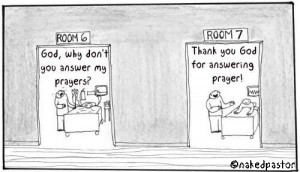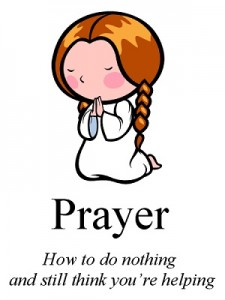
Religious Insensitivity in Times of Loss
Written by Ilva Pieterse
This isn’t for the extremists, the over-the-top, or the bullies. This is for those sensitive religious people who care what impact their words might have on someone not of their faith, who is grieving.
Most of us understand and appreciate that times of bereavement are times of humanity, not of judgement and cruelty. Understanding this, however, does not automatically exempt us from saying the wrong thing. And as far as I’m concerned, people are neither exempted through “having the best intentions at heart”. The bereaved are fragile and downtrodden – in other words, weak – and it is up to the emotionally stronger individual to handle the situation with sensitivity. If you truly wish to be helpful and graceful during times of bereavement, it is imperative that you exercise special caution and guard against religious insensitivity when dealing with someone who is not of your faith. I understand it is especially difficult to find a common ground with someone who is non-religious, or who does not believe in the existence of a god. On this premise, I’d like to gather from my bereavement experience and offer some advice on how to approach this situation, and explain why extra caution is so important.
First of all, atheists experience grief and bereavement just as intensely as anyone else. It is wrong to assume because they do not believe in a god, they are somehow devoid of emotions or that they deserve to suffer. In fact, it can be argued, that without the belief in a “grand-plan” or the existence of an afterlife, death is more permanent and less comforting than it would be to a theist. That they choose not to change their beliefs during times of great loss should be testament to their commitment, and this should be respected and honoured, not pitied. There is nothing pitiable about the strength of someone’s belief system, regardless of how it may contradict your own. Pity a fellow Christian questioning God during a time of strife, if you will – but don’t equate it with someone’s continuance of belief in the non-existence of gods. These are two very different things.
Before I continue, however, I must let it be known that this is not a definitive guide on how atheists should be treated in times of bereavement. I would never claim to know how other atheists feel or how they experience times of loss. Another characteristic that sets us apart from theists is that we are as diverse in our thinking and beliefs as what there are atheists to begin with. Our commonality, and that which “atheism” defines, is in the belief that no gods exist. But contrary to popular belief, this does not define us. This does not consume us. It is an absence of the belief in something… and as such, does not guide us, motivate us, or make us who we are.
Some Notes on Addressing a Grieving Atheist
1. The cruelty of your words – and His
This is a massive bone of contention for the non-religious. Religious platitudes are not only worthless to them, but can very often seem cruel. And there is a good reason for this: When you express yourself in religious terms, what hurts is not the words themselves as much as your belief in them.
I belong to a support group of non-religious mothers who have lost children (through miscarriages and infant loss) and women who are struggling to conceive because of infertility issues. Some of them became atheists/agnostics because of the judgement they received from Christians who insist their losses are “punishment from God” – for anything from premarital sex to not having strong enough faith in God.
Now, imagine you lose a child – whether you are Christian or not, it hurts to be told your loss is deserved. Many of the women in the group were atheists/agnostics before their loss(es), and have most often been told this “punishment from God” is due to their lack of belief that He exists. Honestly, whether you believe this or not, it has no place being directed at someone who is grieving. No one deserves judgement and cruelty at a time off loss, regardless of their beliefs. It certainly is not a time for you to make or “prove” a point.
But what about the positive platitudes, like “He is in a better place”, “God needed another angel”, or “You will be with her again in Heaven”? These should be acceptable, surely, since they mean well? Well, think again. For someone who does not believe in the afterlife, these statements can be hurtful. An atheist’s goal is to live a fulfilled life on earth – there are no post-death rewards. For atheists, life itself is the ‘reward’. So when it comes to death and loss, there are no rewards – unless of course, death is a relief as in the case of someone who was suffering in life. But even in this case, the loved ones left behind still grieve the loss of the happier times and the fact that they will never again be with the person who died. So unless you are certain the bereaved person is Christian, don’t try to comfort them with your beliefs. Saying, “I don’t know what to say”, or “I wish this didn’t happen to you” pack much more meaning for an atheist – they are more heartfelt and honest sentiments.
2. Do not pray for the weak
Never tell them you will pray, or you have been praying, or they are “in your prayers”. If you want to pray for an atheist, or an atheist’s loved one, keep it to yourself. You might think its good manners to ask someone permission to pray for their loved one, especially if you suspect or know they are a non-believer. On the contrary, they do not appreciate this sentiment at all. You might think prayers are harmless and it would be unreasonable for an atheist to say no… after all, if they don’t believe in your god, and so believe prayers are useless, then why would your prayers bother them? It’s the arrogance.
 Your belief in that the prayers might work to somehow alter a situation is seen as very big-headed to an atheist. And when the situation does change for the better, by proudly announcing that your prayers worked, it seems as you are taking credit for a “change in fate”. Sure, God gets credit too, but the reason why he healed the sick is because you prayed for it. That is what “my prayer worked” means to me. You asked God for something, God filled your request, so I should be grateful towards you. So if you want to pray, by all means go ahead. But please keep it between yourself and God. If you care and you want to help, do something else. To an atheist, you only pray to help yourself feel better. You cannot propose to help me by doing something I don’t believe matters.
Your belief in that the prayers might work to somehow alter a situation is seen as very big-headed to an atheist. And when the situation does change for the better, by proudly announcing that your prayers worked, it seems as you are taking credit for a “change in fate”. Sure, God gets credit too, but the reason why he healed the sick is because you prayed for it. That is what “my prayer worked” means to me. You asked God for something, God filled your request, so I should be grateful towards you. So if you want to pray, by all means go ahead. But please keep it between yourself and God. If you care and you want to help, do something else. To an atheist, you only pray to help yourself feel better. You cannot propose to help me by doing something I don’t believe matters.
3. Do not prey on the weak
When non-believers are grieving, you should not see it as an opportunity to convert them to your faith. When I was still fresh in my grief, it was suggested to me that I open myself to God, receive God’s love, and believe in Him. It took me a long time to get over the anger this caused. I felt bullied, as if was being preyed upon in my time of weakness. I felt betrayed and lost much of my tolerance and acceptance for people of faith. In retrospect, I can appreciate that this was not necessarily cheap manipulations for a quick conversion – but perhaps a true form of empathy.
When someone you know or love is suffering, you want to help them… and because your faith helps you in time of emotional pain, you can’t help but project that onto the bereaved. That said, however, don’t assume that the atheist will ever see it from that point of view, especially not right after their loss. They are fragile, emotionally-weak, and tormented, and your attempts at turning them towards God will just antagonise and traumatise them. As difficult as it may be for you, you have to fight the urge to solve the person\’s problems and alleviate their suffering through God. They don’t want your god’s comfort, they want yours… and this can be overwhelming if you are used to entrusting God to fix things.
I’ve heard grieving atheists frustratingly wish for the comfort of faith and God. There have been times I too have wished for the relief brought by a rule-book, like the Bible, to help me through the tougher times. And it’s possible an atheist might one day say the same to you. However, even this should not be regarded as an opportunity for conversion. When an atheist wishes for the comfort of something like a god, it is not because of the desire to change, but rather the grudging awareness and knowledge that a change in mind-set is not, and will not ever be, possible. It is a reiteration of the often cruel reality of life. Saying “I wish I could have faith in God” is no more realistically meant than the wish to have the lost loved one back. And just as impossible.
In putting together my thoughts above, my hope is that when you are faced with a bereaved loved one not of your faith, that you might think twice about what you say. That it might help you to realise the importance of keeping your statements devoid of belief and judgement. This should be a time when humans empathise with humans as humans… because at our very core, after all of our beliefs have been stripped away, that is all we are: people living the compulsory human experience together. And why would we want to hurt each other for that?








